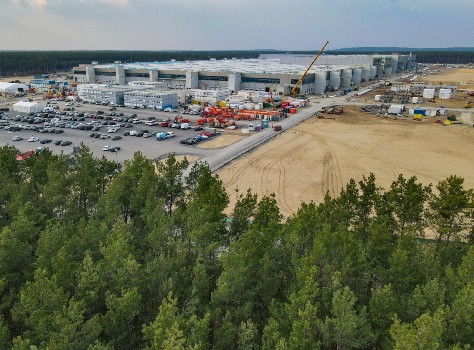Daimler planned to build the Hungarian facility in Kecskemet, 80 kilometres southeast of Budapest, at a cost of about €800 million, a statement said.
The group said it aimed “to sustainably boost its competitiveness, as well as to access new markets and create additional production capacities.”
Hungarian Prime Minister Ferenc Gyurcsany welcomed the news in a statement which said that “Daimler’s decision is synonymous with the biggest investment in the country’s history.”
A final agreement between the German auto giant and Hungarian authorities was expected in the coming weeks.
Meanwhile, Daimler would also invest €600 million in a site in the German city of Rastatt which already produces Mercedes class A and B cars, the statement said.
“Mercedes-Benz will have an even stronger presence in the compact-car segment in the future, with a product line-up of four instead of today’s two vehicles,” the statement said.
The German group had said in February that it might build a new factory in eastern Europe to raise production capacity, in particular of a new generation of smaller and cleaner Mercedes models.
Proposed stricter European Union carbon dioxide emissions levels and climbing oil prices have sparked moves by auto manufacturers to increase output of such vehicles.
A Daimler spokesman told AFP that preliminary work at the Hungarian site would begin in the coming months and that “production should begin in 2012.”
Around 2,500 jobs were to be created there, while current staff levels at the German plant of around 6,000 “should remain roughly the same,” he said.
Capacity at Daimler’s Rastatt factory of around 280,000 units “would be exploited, and that of Hungary would come on top,” the spokesman added.
Erich Klemm, head of Daimler’s works committee, said that “a new assembly plant must not be created at the expense of Rastatt workers.”


 Please whitelist us to continue reading.
Please whitelist us to continue reading.